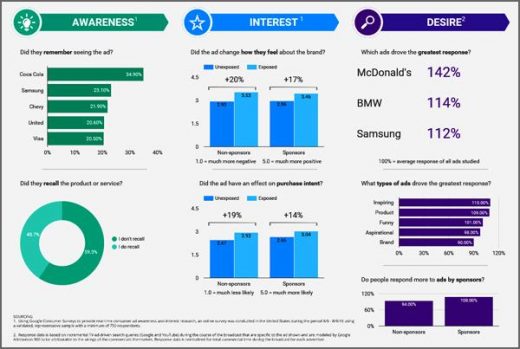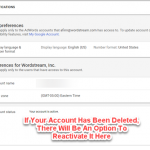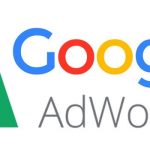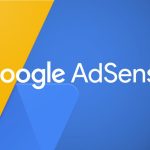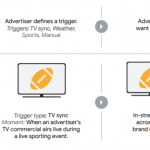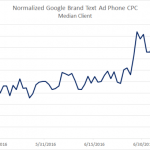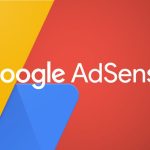Google Checks TV Ads’ Impact During Olympic Opener, Mobile Searches
by Laurie Sullivan @lauriesullivan, August 15, 2016
Despite reports that TV viewership of the 2016 Rio Olympics opening ceremony fell short of historic numbers, Google set out to determine whether the top 10 television advertisers created an impact on fans and how search contributed to the experience.
Google evaluated the top 10 brands based on the total amount of TV advertising minutes that aired during the live broadcast of the opening ceremonies. The analysis is intended to give brands insight into which ads got noticed by audiences, drove interest or shifted perception and increased intent, and prompted consumer responses.
The analysis of the ads — which aired on Aug. 5 from 8 p.m. to 12:15 a.m. EDT — is based on consumer surveys and data from second-screen responses across smartphone, desktop, and tablet data. It is representative of about 750 respondents in the United States, and modeled by the Google Attribution 360 suite. The responses are based on incremental TV ad-driven search queries on Google and YouTube during the broadcast and are specific to the ads.
The ads running on TV drove up mobile searches during the opening ceremony. During the opening ceremonies, TV ad-driven searches were almost exclusively on mobile—94% compared with an average of 56% for those brands when the ads were not airing, according to the Google data.
McDonald’s drove 1.42 times more responses in terms of ad-driven searches compared with the average of all the ads.
Inspiring and product ad creatives drove 10% more responses on average and pure brand creative drove 10% less than average, whereas ads by non-sponsors drove 13% less response than average compared with 10% more than average for sponsors.
During the opening ceremonies, only 40% of the respondents who saw an ad, could recall the actual product or service being advertised.
In addition, 35% of respondents said they remembered seeing the Coke ad compared with 23% who remembered the Samsung ad; 22%, Chevy; 21%, United; and 21% Visa.
Just 17% of respondents said they felt more positive about the brand after seeing the ad compared with 21% for ads of non-sponsors.
About 14% of respondents said they are more likely to seek more information or purchase a product after seeing the ad compared with 19% for ads of non-sponsors, according to Google data.
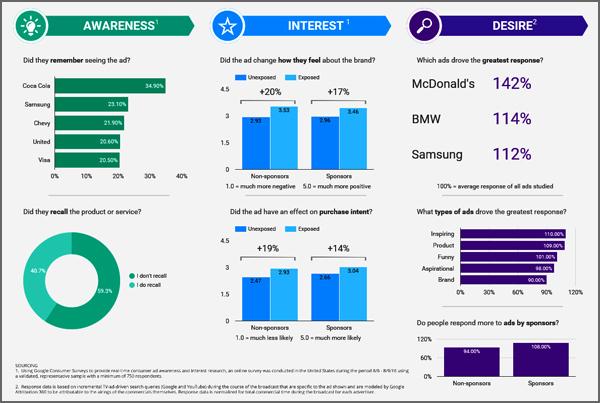
MediaPost.com: Search Marketing Daily
(29)

